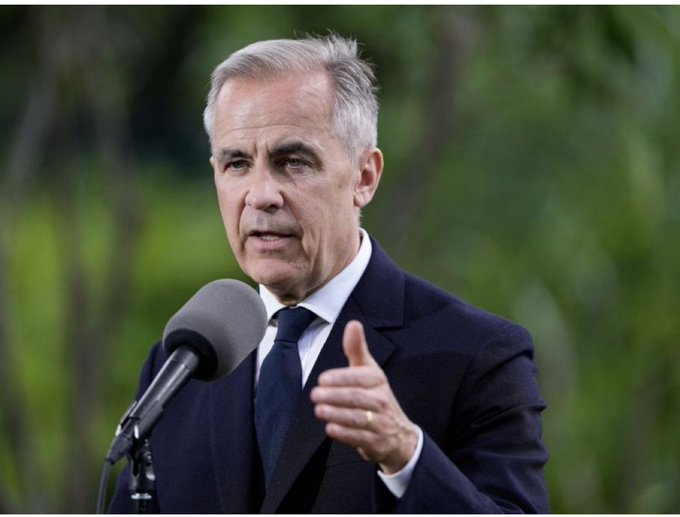The thrilling drama of Canadian politics, where fetal chess takes center stage. Who knew that protecting pregnant women could lead to such a riveting game of political maneuvering? As politicians dance around the nuances of semantics, it’s almost heartwarming to see how passionately they can disagree while agreeing to disagree. After all, nothing quite says “robust discourse” like a verbal tango over an issue as complex as human life. Who needs a reality show when you’ve got Canada’s abortion debate, a true spectacle that combines the excitement of chess with the emotional intensity of a soap opera? Just remember, in this grand theater of ideologies, the pawns are real and the stakes are higher than ever. Enjoy the show, folks!
The Issue of Abortion: A Political Divide Explored
For pro-lifers in Canada, engaging in the political discourse surrounding abortion brings forth an exasperating reality — there appears to be a glaring absence of genuine debate on this contentious matter. The issue of abortion, with its profound ethical and moral implications, seems to remain shrouded in a landscape where meaningful discussion is rare.
A Landscape Defined by Extremes: A Closer Look
Within Canada’s political spectrum, the lines are distinctly drawn. The Liberal Party, led by Trudeau, and other left-leaning parties advocate for unrestricted access to abortion, staunchly supporting the status quo. This status quo involves permitting abortions throughout all nine months of pregnancy, even sanctioning late-term abortions, all funded by taxpayers. The Conservative Party of Canada, while officially aligning with this status quo, does feature a handful of dissenting Members of Parliament who boldly voice their objections.
A Dance of Deception: Political Maneuvering
Remarkably, despite the seeming absence of any formal opposition to Canada’s remarkably permissive abortion laws — perhaps the most lenient among democratic nations — the political landscape is fraught with intrigue. Trudeau’s Liberals resort to a consistent strategy of portraying the Conservative base as clandestinely pro-life, attempting to sow division. On the flip side, Conservative leaders vehemently pledge to abstain from any measures that could curtail abortion rights, further stoking the flames of debate. The media plays its role by dutifully highlighting the resurgence of the abortion issue in politics, effectively turning this complex matter into a political game, with fetal rights at the heart of the controversy.
Case in Point: The “Violence Against Pregnant Women Act”
A compelling illustration of this intricate dance lies in the response to MP Cathay Wagantall’s proposed “Violence Against Pregnant Women Act” (Bill C-311). This legislation seeks to impose harsher sentences on individuals who commit violent acts against pregnant women. The bill was meticulously crafted to sidestep the abortion issue, focusing solely on violence towards pregnant women. However, even in this context, fierce activists within the abortion movement found cause for objection.
A Clash of Ideologies: Parsing the Response
Notably, Joyce Arthur, a prominent figure in the Abortion Rights Coalition of Canada, swiftly voiced her opposition to the bill. Arthur’s stance underscores the divisive nature of the debate. She contended that the bill’s focus on pregnant individuals is problematic, insinuating that it inadvertently supports pro-life sentiments. Arthur’s opposition is rooted in her belief that singling out pregnant women for special protection could indirectly challenge Canada’s established perspective on fetal personhood.
The War of Words and Interpretation
The ensuing narrative showcases the strategic deployment of words and interpretations. Liberals, who are ardently committed to safeguarding abortion rights, seized upon Arthur’s objections with apparent glee. Oddly, their enthusiasm appears to overshadow the potentially macabre implications of their stance. For instance, Trudeau’s Chief of Staff, Katie Telford, took to social media to amplify Arthur’s views, emphasizing that Canada allegedly lacks pro-choice Members of Parliament.
An Ongoing Debate: Fact-Checking and Public Response
In a testament to the power of information, the online community swiftly engaged in fact-checking Telford’s assertions. The actual content of Bill C-311 reveals that it contains no mention of abortion. The bill’s purpose is solely to enhance the legal consequences for crimes committed against pregnant women. Mainstream journalists, including Don Martin of CTV News, voiced skepticism regarding Telford’s intent, highlighting the misleading nature of her claim.
The Realm of Logic and Discourse: Interpreting Intent
As the public discourse unfolded, it became evident that words can be wielded in a multitude of ways. Labeling a bill as “pro-life” solely because it considers assaulting pregnant women an “aggravating circumstance” highlights the complexities of interpretation. Alexander Raikin succinctly summarized the irony, likening this act to a feat of extraordinary logic.
Final Thoughts: A Complex Landscape of Debate
The abortion debate in Canada stands as a testament to the intricate interplay between political agendas, rhetoric, and ethical concerns. The polarized nature of the discourse, often shrouded in nuanced interpretations, underscores the deep-seated convictions on both sides. As the nation navigates this multifaceted terrain, one can only hope for a future where genuine dialogue transcends the political chessboard, allowing for a more comprehensive understanding of the complex issues at hand.










